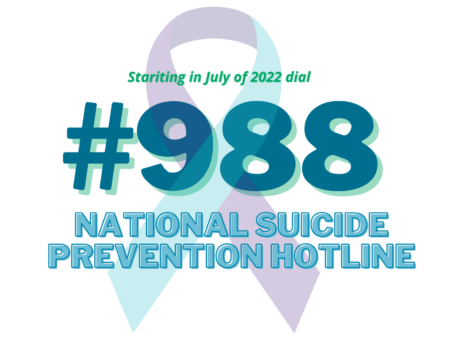
Inadequate access to behavioral and mental health services on a state level poses one of the largest public health challenges in this country. With improper response systems such as the use of law enforcement in response to moments of psychosis being dropped off to overcrowded emergency rooms, or being incarcerated in corrections institutions, many people often do not receive the help they need. The Federal Government passed legislation to address this crucial service gap. The National Suicide Hotline Designation Act of 2020 was signed into law on October 17, 2020 requiring that all State telecommunications services implement 988 for mental health emergencies, including suicide. Beginning in July 2022, callers across the country that dial ‘988’ will be connected to the National Suicide Prevention Hotline (the Lifeline) or to a local crisis response center.
Washington State 988 Implementation
In April 2021 Washington State legislators took this mandate a step further passing House Bill 1477 (HB 1477). This bill charges the Washington Department of Health and the Washington Health Care Authority with the development and implementation of an entire integrated crisis response system that would connect all Washington residents in need to enhanced behavioral health crisis response and suicide prevention services statewide; not simply a telecommunications hotline.
In Washington, suicide rates are higher among American Indians/Alaska Natives than among the general population, while BIPOC communities in Washington face disproportionate criminal justice involvement and interactions with law enforcement, including violent responses by police to those experiencing a mental health crisis. HB 1477 takes a community-first approach, envisioning a statewide crisis response system that provides culturally and linguistically competent services to save lives and stabilize individuals in crisis in the community using the least restrictive means possible.
The goals of HB 1477 are to :
- reduce reliance on emergency rooms
- decrease the use of law enforcement in response to behavioral health crises
- stabilize individuals experiencing behavioral health crises in the community whenever possible
- provide culturally and linguistically competent services
- Save lives, specifically reducing harm to Black, Indigenous and People of Color (BIPOC) communities in Washington.
In preparation for 988 implementation in the state of Washington, Third Sector Capital Partners (Third Sector) partnered with Washington State to explore the features of a successful crisis response and management system that would allow the state to meet the requirements of the National Suicide Hotline Designation Act of 2020. Third Sector conducted a landscape assessment of the current state of Washington’s behavioral health crisis response system as well as exemplars from other states and potential software vendors that provide case management and crisis call response services.
This report was made possible through an independent grant from Ballmer Group.
